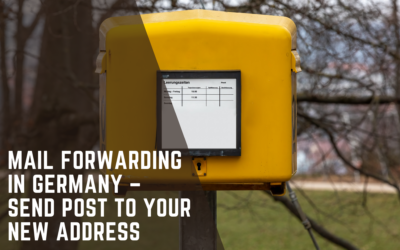HOW TO SAVE ENERGY IN GERMANY (& MONEY TOO!)
Recent years have been economically tough in Germany, with the Guardian reporting that living standards in the country plummeted after Russia invaded Ukraine. The war resulted in the EU reducing their energy dependence on Russia, which partially contributed to energy (and other related costs) increasing dramatically. It left people worried about being able to pay their energy bills and led many to drastically change their daily habits, such as taking fewer showers and using their heat sparingly, if at all.
While Germany has taken action to secure the country’s energy supplies and shield the most vulnerable from the rising costs, energy costs won’t go down significantly for some time. This and the worsening effects of climate change necessitate us being mindful of our consumption for not only cost reasons but healing the planet as well.
That said, there are numerous ways to save energy in Germany right now – in winter or summer and ensure you won’t get expensive energy bills.
Join Our Community
Stay ahead with the latest news on immigration developments, employment opportunities, and other updates about life in Germany. Get valuable insights, early access to Berlin Life guides, invites to community events, and more. Don’t miss out – subscribe to one of the most popular newsletters in Berlin.

OUR TOP ENERGY-SAVING TIPS
There’s power in knowing that the costs will be higher. It gives us time to prepare and learn what we can do to reduce our energy consumption this winter – either gas, oil, and electricity.
Here’s our list full of, obvious and not-so-obvious, tips about how to save energy in Germany. Note, that some tips help you more than others, but at this point, every bit counts.
1) Change How You Heat Your Home
Some no-brainers are to keep the heat on low, only heat the rooms you’re in, and turn the heat off when you’re not home.
If you want to be fancy, get yourself smart heating switches that work with Alexa or via an app. They allow you to remotely turn on your heat before getting home from work or set a schedule to turn off the heat soon after falling asleep. We recommend these ones that work with the typical radiators you find in German flats:
⭐ Homematic IP Smart Home Heating Starter Set
⭐ tado ° Smart Radiator Thermostat
⭐ Netatmo Smart WLAN Radiator Thermostat Starter Pack
You can also get a portable space heater but only do so after researching if it’s really going to reduce your energy consumption, as it could actually end up costing you more. Some space heaters to consider:
⭐ Dreo Solaris Slim H3 Energy-Saving, PTC Ceramic Fan Heater
⭐ Rowenta SO9266 Mini Excel Eco Safe Fan Heater
⭐ GoveeLife Intelligent Ceramic Fan Heater, Quiet Energy Saving Electric Heater with Thermostat
An unfortunate effect of keeping your house cool is the potential for mold build-up. When you’re drying clothes, do it in a big well-ventilated room, open the windows for a while to bring in some fresh air, or pump up the heat for a short time. Another tip is to air out your flat, one room at a time.
If you want to know how humid it is in your flat, think about buying a hygrometer:
⭐ ThermoPro TP50 digital thermo-hygrometer, room temperature and humidity meter
⭐ SwitchBot Thermometer Hygrometer Indoor
⭐ DOQAUS Thermometer Hygrometer
I have the SwitchBot one and found it super useful to track temperature and humidity levels at home.
2) Find Alternative Ways To Stay Warm … Or Cool
There’s always the option of cuddling up with a loved one, be it a canine, feline, or human companion, or piling on layers of clothes. But how else can you stay warm?
Go to bed with a hot water bottle or use an electric blanket. While the purchase of an electric blanket made me feel like an elderly grandma, I got an electric blanket a few years back and use it all of the time during winter.
For hot water bottle inspiration:
⭐ Hot water bottle with waist warmer
⭐ Blumtal Hot Water Bottle with Soft Cover
⭐ samply Hot Water Bottle with Cover
For electric blankets:
⭐ Electric Blanket with Automatic Shut-Off
⭐ Cosi Home Luxury Electric Blanket with Automatic Shut-Off
⭐ CAROMIO Electric Blanket with Automatic Shut-Off
You can also consider going to bed with a pair of thermal socks:
⭐ Polar Husky – 3 Pairs of Super Warm Thermal Socks
Or a plush robe:
⭐ CityComfort Women’s Fluffy Fleece Dressing Gown with Hood
⭐ NY Threads Women’s Fleece Dressing Gown with Hood
⭐ Homelevel Sherpa Reversible Bathrobe
Many people are also going for weighted blankets:
⭐ Noahas Weighted Blanket for Adults
⭐ COSTWAY Weighted Blanket with 2 Removable Covers
If you’re looking for ways to remain cool in the summer months, try a cooling blanket. They’re great to sleep with, curl up on the couch with, or even pack when going on a trip. Check out these options:
3) Be Mindful When Washing Dishes
In almost all cases, you save more energy by using the dishwasher versus washing dishes by hand. Of course, there are things you still need to wash by hand, like wooden cutting boards or chef’s knives, but you can bring that to a minimum.
When using your dishwasher, only run a wash when it’s full and use an eco-setting.
Similarly, if you hand wash, only wash when the sink is full. Washing several times throughout the day only uses up more water. Further to that, use warm water versus really hot water, fill the sink with a small amount of water for washing, and don’t leave the water running for long periods of time. Although I’m skeptical, expert advice even says that rinsing soap off isn’t necessary.
If you’re purchasing a new dishwasher, buy an energy-saving one.
4) Take A Shower Instead of Bathing
While I’m pretty precious about regularly having long bubble baths, I’m going to alter my behavior this winter. Common advice is to take shorter showers, at lower temperatures, and less frequently. There’s no need for a scalding hot shower. Even better is turning off the water when you’re applying shampoo and conditioner or lathering up with soap.
Another idea is to buy an energy-efficient shower head:
Or use a flow limiter:
When you brush your teeth, don’t leave the water running and the same applies when washing your hands.
You can also skip using a hair dryer and opt to towel dry it instead with a super absorbent fast-drying towel. Check out some of these:
⭐ Buluri Hair Turban, 3 Pack Turban Towel
⭐ ZSWQ Turban Hair Drying Towel
I love using hair turbans. On the weekend mornings, you’ll often find me lounging on the sofa with a coffee, wearing a warm robe, wrapped in a hair turban, and giving myself a facial treatment. It’s like being at the spa, but at home, and it’s one of my favourite routines.
5) Get Smart With Your Lights
If you’re not in the room, turn off the lights. Make your home more romantic and cozy by using candles.
Even better is buying LED bulbs that seem to last forever and use way less energy. While more expensive than traditional light bulbs, it will save you in the long term. Some examples to point you in the right direction:
You can also get smart bulbs that work with Amazon and Apple Home, as well as other apps. You can do things like walk into a room and say “Hey Alexa, turn on the lights” or even schedule a morning wake-up call to a special colored light.
Here’s an example:
6) Care For Your Windows
Another way to save energy in Germany is to close your windows to keep the heat in, especially at night. As much as you like fresh air, limit how often and for how long you keep your windows open. At night when temperatures really drop, keep the curtains or blinds closed too. This encloses the heat inside your flat and ensures the cold stays out.
The same applies in summer when my apartment gets unbearably hot. The windows are hot to the touch. As such, I keep my curtains and windows closed for the first half of the day to trap the cool air in and keep the heat out. I open both the windows and curtains after lunch when the outdoor temperature is much cooler.
Consider buying a thermal blackout curtain to help even more. There are plenty of affordable options out there:
⭐ PONY DANCE opaque blackout curtains
Make sure your curtains don’t cover your radiators or air conditioning unit as it will limit the flow of heat or cold air through your flat. It’s also a good idea to make sure your radiators aren’t blocked by furniture either.
7) Switch Up Your Laundry Routine
While it’s time-consuming and tedious, you can hand wash your nicer items of clothing. Only run a wash when you have a full load, use an eco-option, avoid long washes that go for hours, and don’t run a wash using high temperatures. A colder wash (40 degrees or less) can reduce energy use by up to 80%! Use detergent that cleans your clothes efficiently and won’t require a re-wash.
If you’re one of those rare unicorns who have a dryer in Germany, avoid using it altogether and hang your clothes, towels, and bedding on a rack to dry.
If you’re buying a new appliance, look for an energy-saving washing machine.
8) Refine Your Cooking Habits
Using your oven and stove less will help you reduce your energy consumption. Use some of your small appliances instead, like a microwave, toaster oven, panini press, etc.
Some people have opted to purchase hot plates/induction hobs like this:
When I moved into my new flat back in January, I used one of these for months as I waited on my new kitchen to be installed and it actually worked quite well.
I finally caved and bought an air fryer this past spring and it changed my life. I use it to roast vegetables, make homemade french fries, and cook meat to perfection. It uses way less energy and in summer, doesn’t radiate as much heat into your already sweltering apartment. Some options are:
Another power move (pun intended!) to help you save energy in Germany is unplugging your appliances when you’re not using them. This includes things like a blender, coffee maker, toaster, power bar, and more. Over the long run, you’ll save a significant amount of cash.
The tech-savvy among you can opt for smart plugs:
⭐ LoraTap Smart WLAN Socket with Energy Consumption Control
You can also add energy-saving taps around the house, which will be especially helpful in your kitchen:
9) Seek Ecofriendly Ways To Keep Your Flat Cool
German summers are getting dryer and hotter and with many flats not having air conditioning, our homes turn into saunas. Even getting naked doesn’t seem to help and not feeling perpetually exhausted is a major challenge.
Buy a fan. Heck, buy all of the fans. I recommend an oscillating, tower fan as they distribute and move the air more than any other type. Many of them are on wheels and are easy to move from room to room. If possible, splurge on one for each bedroom so everyone has a fan to help them sleep peacefully at night.
Yes, fans use electricity, so use them sparingly, but it’s much better than having to fork out money for an air conditioner, a notorious consumer of electricity.
Our recommended tower fans:
⭐ LEVOIT 28 dB Quiet Tower Fan
⭐ Brandson 2020 Model – Tower Fan with Remote Control
The best investment I ever made and something I’ve used faithfully every summer for five years now is a mobile air conditioner. Not an air conditioner that you need to install in a window frame or needs to be connected to a hose, but essentially, a fan with a water tank that you can add ice packs to, and then have it blow out cold air. The air is not as cold as a real air conditioner, but it uses way less electricity and is much more environmentally friendly. For an idea, check out:
⭐ Klarstein Skyscraper Ice 4-in-1 Mobile Air Conditioner
⭐ Mobile Air Conditioner 4 in 1
Ceiling fans are no longer the home decor eyesores they used to be:
⭐ SONNI Ceiling Fan with Lighting and Remote Control
⭐ Ovlaim Ceiling Fan with Wooden Blades and LED Lighting
⭐ Ceiling Fan with Lighting E26 Bulb Retro Fan Ceiling Light with Remote Control
10) Share The Chill With Your Pets
It’s not only us who suffer during times of extreme heat – our precious fur babies suffer too. I have two cats who really felt the long hot days last summer and these are some of the things I did for them.
I bought a fountain that made the cats excited about drinking water and helped to keep them hydrated. Here are some options that work for both cats and dogs:
⭐ MyPaws PET POD Cat Drinking Fountain
⭐ PETKIT CYBERTAIL Cat and Dog Water Dispenser
⭐ Peace Drinking Fountain Stainless Steel 3.2 L for Cats and Dogs
Adding extra bowls of water around different rooms in the flat also helped.
Cooling mats are another great way to give pets a chance to curl up for a snooze on a cool surface. They come in all sorts of shapes and sizes, as well as patterns. You can add the mats to their bed or even in their crates. You can wash them and easily fold them up to store them away during colder times. Here are some different ones for inspiration:
⭐ Pet Dog Self Cooling Mat Pad for Kennels, Crates and Bed
Our Bonus Tips
Some other information about saving energy in Germany:
1) Reduce how much you watch TV and how long you leave it on for – don’t fall asleep and leave it running all night.
2) We’ve seen advice telling people to turn off their modems when they aren’t using the internet. Don’t turn your modem off at night, as it can mess with your bandwidth and cause issues with your modem.
3) Read even more tips from the government on how to save energy in Germany and learn how the government’s new price brake will minimize your energy costs.
4) Although not related to energy savings, do you know that if you live and work in Germany, you may be able to receive €3,000 from your employer to help minimize the financial burden from inflation and rising prices? Read our guide about the inflation bonus in Germany.
That concludes our eight top ways to save energy in Germany. What are you doing to save money on energy? Let’s all learn from one another and drop us your tips by leaving a comment below.
RELATED CONTENT
Best Berlin Blogs To Help You Experience The City
Keen to explore the city’s history, find a brunch spot, or get tips on finding a flat? These are the best Berlin blogs to get you started.
A Guide To The Cost Of Living In Berlin In 2024
A personal guide to the cost of living in Berlin. Learn what locals are paying & use our handy calculator to figure out your expenses.
Mail Forwarding In Germany – Send Post To Your New Address
Moving to a new flat or leaving Germany entirely? Don’t miss important documents & use Deutsche Post’s service for mail forwarding in Germany.

Cheryl Howard, Founder @ The Berlin Life
Hi, I’m Cheryl. My mission is to help you move to Berlin and find work.
A Canadian in Berlin for 10+ years, I have the unique experience of moving to Berlin – not once, but twice. During my time in Berlin, I’ve had five different visas and worked as both a freelancer and a permanent employee for numerous Berlin companies. I even managed to find a new job during the pandemic and again in 2023, during Germany’s recession and massive layoffs in tech.
My day job has involved work as a hiring manager, overseeing the recruitment of countless people, as well as a team coach helping teams and individuals work better and find happiness in their careers. Through my side projects, I’ve also shared my personal experiences by publishing a series of helpful blog posts, creating a thriving community of job seekers, and hosting events to help people find work in Berlin. In 2021, I decided to put my coaching and recruiting talents to use by creating The Berlin Life, bringing my existing content and community together in one spot.
The combination of my personal and professional experience means I know exactly what it takes to move to Berlin and find work.
Disclaimer – This post contains some affiliate links. If you purchase a product on Amazon, I’ll earn a tiny commission at no extra cost to you. Thanks for your support!




